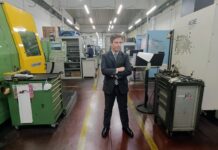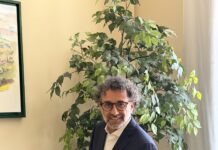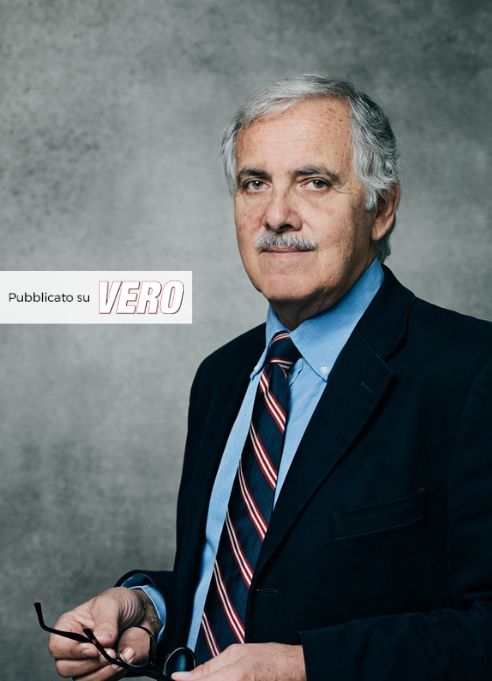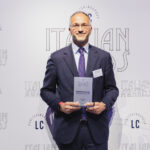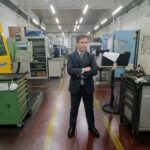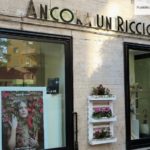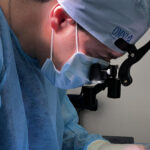How many times a rhinoplasty surgeon hears these words from a patient who is dissatisfied with the outcome of the rhinoplasty operation he underwent! In the international cases of the best surgeons the incidence of imperfect results varies between 5% and 9%. On the other hand, any plastic surgery can include subsequent improvement, and rhinoplasty is of course no exception. Even more so when rhinoplasty is a secondary or revision. But what exactly do these terms mean? We ask this to dr. Sebastiano Sciuto, one of the most experienced Italian rhinoplasty surgeons, with thirty years of experience in the field, co-founder of the AICEFF (Italian Association of Aesthetic and Functional Surgery of the Face) and of the Italian Academy of Rhinology, member of the European Academy of Facial Plastic Surgery.
Dr. Sciuto, a professional life dedicated to rhinoplasty.
That’s right: the main field of my professional interest in the last thirty years has been nose surgery in all its aspects, with the main objective of achieving the difficult and delicate balance between functionality and aesthetics. I was among the first to apply the surgical technique of endoscopic nasal surgery, which allows to intervene passing inside the nasal cavities without operating any type of external cut, significantly reducing healing times.
Every three years I direct Naso & Dintorni, an international course in nose and face surgery, a very interesting and fundamental opportunity for exchanging professional and human experiences, to which, from 1993 (first edition) to today, hundreds of surgeons participated Italians and foreigners. I performed thousands of primary and secondary rhinoplasty operations. Yes, we can say that the nose is my professional “obsession” (smiles).
Everyone knows more or less what a rhinoplasty operation is, but can explain to our readers what secondary or revision rhinoplasty is, a surgical practice in which you represent one of the Italian excellences.
Thank you for this definition; in fact I have gained a great deal of experience in this type of surgery, which is delicate from a technical but also a psychological point of view. In recent years, in fact, there have been growing cases of patients who turn to me because they are unhappy with the outcome of the rhinoplasty performed. Unfortunately surgeons with little specific experience in nasal surgery can cause serious damage to the nose of those who have relied on them with confidence. Attention, however: not always the responsibility of the patient’s dissatisfaction is due to a bad job of the surgeon. In fact, it may happen that the new nose does not correspond to the “imagined” one or that breathing difficulties persist due to the unpredictability of the healing process, which is never the same from patient to patient: the cartilage can flex, the bones can weld unevenly, the swelling can persist for a very long time and the final result may vary from person to person. Whatever the causes, those who are dissatisfied with their redone nose may decide to resort to secondary rhinoplasty. And here I speak.
Is secondary rhinoplasty more difficult for the surgeon and patient?
It is undeniable that operating a nose for the second time presents greater difficulties than doing it on one never operated before: it is as if someone had put inside the nose of the “glue” to make the skin adhere well to the bones and cartilages below. This “glue” is the scar tissue, which is very durable and should be treated with very cautious and careful maneuvers to avoid further damage. However, despite the technical difficulties of the intervention, certainly reserved for the most experienced surgeons, most patients benefit from revision surgery, especially those that have realistic expectations. The most serious surgeons do not operate if they are not convinced that an improvement is possible, but we must be realistic: most often the goal of secondary rhinoplasty is improvement and not perfection.
Therefore, dr. Sciuto, what advice can you give to those who are dissatisfied with their operated nose?
First of all, to wait patiently for the passing of time: before declaring oneself dissatisfied with one’s nose, it is necessary to let at least 10-12 months pass, so much for the tissues to heal and deflate definitively and thus assume a definitive and stable form and function, which can be appreciated or rejected.
In the second case it is absolutely necessary to contact an experienced surgeon, that is to say that he has experience gained by performing a large number of nasal surgical procedures: today in Italy there are few surgeons operating more than 50 noses a year, as in all there are few people in the world who work more than 100. It is better to rely on proven professional seriousness rather than the reputation gained on social and media.
One last curiosity, before leaving us: what does he do when he is not working?
My second passion after the nose (he still smiles) is the sea: as soon as I have a free moment I run away on my sailboat, between sea and sky. The beauty and perfection of nature are always a source of inspiration for my work and my life.

